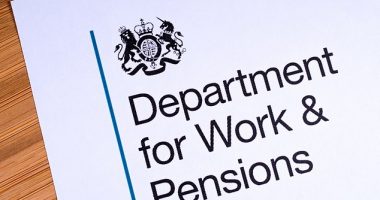
I have to let out my flat because I’m moving abroad for work for a couple of years. The last time I did this, the flat got pretty bashed up by tenants – not just a bit of wear and tear.
The letting agency was meant to manage everything for me while I was away and couldn’t do it myself, but didn’t appear to have taken much interest in cleaning it up and properly re-marketing it until I intervened and came back to resolve the situation.
I’m about to have a new set of agencies around to have a look.
Are there any giveaway questions I should ask, or telltale signs I should look out for when I am interviewing the agents, to work out if they will find better tenants and do more to look after my flat? It’s my home, and I’ll be moving in again when I get back.


This reader is looking for a professional letting agent who will find good tenants for their home
Helen Crane of This is Money replies: Handing over the keys to your home to someone else can be hard – especially if they are just keeping it warm for a short while while you are working away.
A good managing agent should take away some of that stress, ensuring your property is well taken care of while dealing with any issues that come up, from a lost set of keys to a broken boiler to finding new tenants if it becomes empty.
For your peace of mind, you will also want to be kept in the loop with regular inspections and updates.
This is especially important for you, as you will be out of the country for long periods of time – and it sounds as if your previous agent let you down in this area.
You’ll also be paying them a pretty penny for the privilege, so you need to know they are going to do a good job.
According to insurer Simply Business, landlords can pay anywhere between about 12 per cent and 20 per cent of the monthly rent collected to their managing agent, depending on the level of service they require.
There will also be one-off fees for things like finding new tenants and referencing.
I asked four property experts the questions they would ask a prospective managing agent to sort the wheat from the chaff, and they came up with the following advice.
Get recommendations and check out online reviews
When you are searching for agents to interview for the job, a glowing recommendation can help you decide which firms should be at the top of the pile.
If you know any other landlords, or perhaps colleagues who have also worked abroad, ask them if they used letting or management agents and whether they were happy with them.
However, you will first want to check that they have similar properties to yours on their books. If they’re used to managing student houses or working for large portfolio landlords, for example, they might not have the right set-up for your flat.
You should be able to get a feel for this by looking at their website, or giving them a call to ask.


Renting out your home can be hard, but property managers can take away some of the stress
‘Firstly, pinpoint three local agents that service your area and that have similar properties to your home,’ says Lara Bradley, head of lettings at property developer and manager Strawberry Star.
‘Most of our business is from referrals, so try and partner with an agent who has been recommended to you. Then, do your research on all of them.’
Online reviews are also a useful tool. Look at independent sites such as Trustpilot and Google reviews, but bear in mind that reviews can still be faked, and some companies will give their customers incentives to post a good one.
‘The first step to finding a good managing agent is checking reviews,’ says Jack Reid, founder and director of estate agent Orlando Reid.
‘The agent should have a good number of high-quality reviews specifically mentioning management.
‘Although it may be laborious going through hundreds of reviews, it should save the heartache of choosing an agent who doesn’t look after your property well.’
However good their service is, most agents will get negative reviews from time to time. How quickly and professionally they respond to these is a good indication of their competence.
‘With online reviews, look out for when the agent takes the time to respond to any negative feedback and tries to resolve these issues’, Bradley says. ‘Look out for more recent reviews too; ones during the pandemic.’
Make sure they have the right qualifications
Another easy way to rule out agents is by discarding those who don’t have professional qualifications, although do bear in mind that these are voluntary and not required by law. Some agents with many years of experience may not have these qualifications.
‘Make sure the property manager is ARLA qualified so they are fully up to date with all legal requirements – their job is to protect you,’ says David Mumby, head of prime central London lettings at the estate agent Knight Frank.
ARLA Propertymark is a professional body for letting agents, and has more than 17,500 member firms.
While the property industry is not regulated, ARLA members voluntarily agree to provide company information to the organisation every year to demonstrate transparency.
This includes details of their standard tenancy agreement, money laundering checks and data protection policies, for example.
It is also worth doing some background research on the company and their staff’s level of experience – perhaps by looking at reviews on Glassdoor or Linkedin.
Says Bradley: ‘You want to understand the size of the team and their collective experience – if everyone has been in the office a good number of years, it’s an indicator that the office is happy and customers are happy, as good people tend to stay.’


Check out the company’s credentials online to find out whether their staff are happy – if they are, they will stick around longer and work harder for their customers
Check their workload
You will also want to find out how many homes each member of staff is responsible for, as you don’t want your flat getting forgotten by an over-worked agent.
Mumby says it should be no more than 100 per agent, while Bradley puts her estimate at 150 to 200.
‘Find out how many properties they manage in their portfolio and how many staff,’ she says. ‘If they have 300 properties and only one property manager on the ground, this should be a red flag.’
Ask about their inspection policy
In addition, you should find out how many times the agent would plan to visit your home for an inspection if you appointed them.
‘How many times will the property manager visit the property, and will it be the actual property manager, or is this outsourced?’ Mumby says. ‘I would look for at least two visits per year, and more as required – should a neighbour call and say there was a party for instance.
You might need to pay extra for more regular inspections, but it could be worth it for the peace of mind that your home is being treated well.
Reid suggests asking for quarterly inspections, to encourage the tenants to keep the flat in good nick.
‘There is normally a cost related to this, however, the fact that the tenant knows mid-term inspections will take place throughout the tenancy will encourage them to maintain the property in good condition,’ he says.
The agent should provide you with reports after each inspection to keep you abreast of any issues with, or damage to, the property.
Ask your prospective agents whether these will include pictures, if that is important to you.
Since the pandemic began, some agents have been taking videos to send to landlords who aren’t able to visit the properties themselves.
‘We’ve started doing video reports over lockdown, and that’s been very well received by our landlords – adding an additional layer of transparency and confidence,’ says Bradley.
Grill them on current regulations
The pandemic has led to various changes in the rules surrounding rented properties, particularly when it comes to evictions and the notice period landlords need to give before evicting a tenant.
Chris Morris, head of lettings at estate agent Cluttons, says this provides you with a good opportunity to check an agent is up to speed on the regulations.
‘The agent should be able to confirm the amount of notice required to end the tenancy,’ he says.
‘This has changed numerous times recently owing to coronavirus, so it’s an opportunity for the agent to demonstrate that they have a good command of current legislation.’
Currently, tenants should get two weeks’ notice of an eviction date and four months’ notice before court proceedings can start.


Inventories and returning the deposit can be a source of drama between landlords and tenants, so if you are appointing a letting agent ask them how they manage the process
Ask how they carry out references and inventories
The vast majority of disputes between landlords and tenants occur because of disagreements about the condition of the property and how much of a deposit should be paid back – as you unfortunately found out when you let your home previously.
This is why finding out how an agent carries out inventories is crucial.
‘The process must be robust and incredibly thorough,’ says Bradley. ‘For this to happen, we use an external agency, as in case of any dispute they can act as an independent neutral party.
‘Often, having an external inventory and check-out agency can remove the need for multiple back and forths, as it elicits much more trust in the process from both the tenant and landlord.’
Hopefully your next tenancy will run smoothly. But in case it doesn’t, you may also wish to ask what the agent’s track record is in deposit disputes that end up going to court.
‘If the agent says they’ve had five claims on the deposit and they’ve won three, that’s considered pretty good in the industry, relative to the number of properties on their books,’ says Bradley.
‘Claims often rest on how thorough the initial inventory is – it’s pretty standard that a one-bed property can have a check-in report 40 pages long.’
Tell them finding a good tenant is your priority
From your message, it seems that finding a respectful tenant is perhaps more important to you than securing the highest possible rent.
Managing agents are often instructed to do the latter, so be clear about what you want to get out of this letting arrangement and ask them how they will find you the kind of tenant you are looking for.
‘The landlord should look for a managing agent that places a lot of focus on securing a highly appropriate tenant, and has the capability to do this,’ says Morris.
‘Some agents think that landlords are only motivated by achieving the highest possible rent. The landlord should ask for examples of similar properties let by the agent and what type of tenants they attracted.’
Asking about the referencing process will be crucial to this. Some may handle it in-house, while others will outsource it to an external company.
To make sure your rental income is secure, a credit check should always be included according to Bradley.
‘An Experian credit check should always be carried out. The tenants have to earn 2.5 times the rent to pass the affordability check – this is the bare minimum.’
Trust your instincts and first impressions
After spending some time interviewing agents, you should start to get a feel for their service and responsiveness.
‘How quick have they been to respond and what have their service levels been so far? If you are having to chase them at this stage or they are unprofessional, steer well clear,’ says Mumby.
Trusting your gut instinct might also come into play here.
‘If the landlord develops a good rapport with one of the agents and genuinely feels they are the best person to look after their home and best protect their interests, they are likely to be right more often than not,’ says Morris.
Meet the tenant before you leave
Once you have appointed your agent and they have found a tenant for you, try to arrange to meet them if your moving schedule allows.
Ultimately it is the tenant who you are entrusting with your home day-to-day, and putting a face to their name will get your relationship off to a good start.
You could also use this as an opportunity to show them how things work in the property; where they can find the stopcock and gas and electric meters; and to explain any quirks.
‘To give our landlords more confidence that they have chosen the right tenant, I always advise that they meet their tenant in person before the contract starts,’ says Bradley.
‘By meeting each other, you become real humans and, therefore, they are much more likely to show respect for the property.
‘Being able to explain that it is your family home, as opposed to a faceless landlord just taking their money, often marks the start of a special relationship where more empathy usually follows on both sides.’











